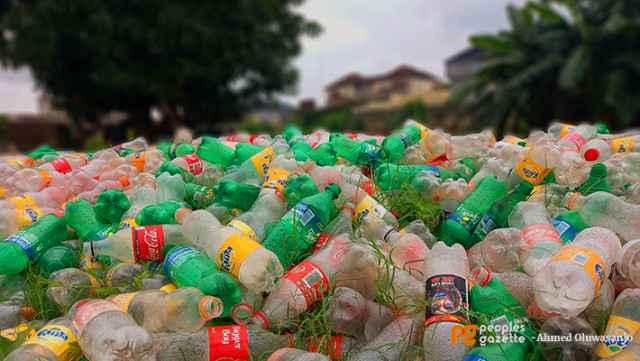The Economic Community of West African States (ECOWAS) is calling for a unified regional effort from its member states to address plastic pollution, which it has recognized as a "transboundary challenge."
The ECOWAS Commissioner for Economic Affairs and Agriculture, Massandje Toure-Litse, made this statement at the World Environment Day celebration on Tuesday in Abuja, centered around the theme: "Together, We Can Beat Plastic Pollution."
Represented by Bernard Koffi, the ECOWAS director of environment and natural resources, she characterized plastic pollution as a crisis that spans global, regional, and national levels.
She reaffirmed ECOWAS' dedication to combating the ongoing issues of plastic pollution by implementing the 2023 Regulation C/REG.17/12/23 on plastics management.
According to her, addressing these challenges necessitates that member states align their regulations on plastic products and adopt optimal practices in plastic waste management.
Ms. Toure-Litse therefore urged member states to work collaboratively and urgently to confront the issue of plastic pollution, emphasizing that ECOWAS Vision 2050 highlights environmental sustainability as a key aspect of inclusive development.
“Combating plastic pollution is a measure of our commitment to act collectively as governments, private sector contributors, civil society, and citizens.
In this context, a draft regional plastics management plan has been prepared with the assistance of the World Bank,” she stated. She added that this year's celebration theme, which aligns with ECOWAS’ 50th anniversary, deeply resonates with regional priorities.
“It is appropriate that in this significant year, we reaffirm our pledge to create a clean, resilient, and sustainable environment for upcoming generations,” Ms. Toure-Litse noted.
She also revealed that West Africa produces nearly eight million metric tons of plastic waste each year, a figure projected to increase by 52 percent in the next five years.
Ms. Toure-Litse pointed out that over 80 percent of plastic waste is inadequately managed in West Africa, negatively affecting human health, ecosystems, and blue-economy sectors such as fishing and tourism.
However, the commissioner observed that the challenge is manageable due to innovative strategies already being employed throughout the West African region.
She cited examples such as circular economy initiatives being expanded in Ghana and Nigeria, along with plastic bag bans and extended producer responsibility frameworks implemented by Senegal and Côte d’Ivoire.
“We urge all stakeholders in the region to invest in eco-innovation and plastic alternatives and support community-driven waste management initiatives,” she added.
Additionally, Balarabe Lawal, Nigeria’s Minister of Environment, stated that the event’s theme underscores a global urgency that cannot be ignored, as plastic pollution poses an environmental, economic, and public health crisis.
“Like many other nations, Nigeria is confronted with significant challenges in plastic waste management, and we are taking strong measures to tackle plastic pollution at every level.
This is a battle for the preservation of our ecosystems, the future of our children, and the survival of our beloved planet,” the minister remarked.
World Environment Day, celebrated around the globe annually, was co-organized by ECOWAS and the Ministry of Environment.




















